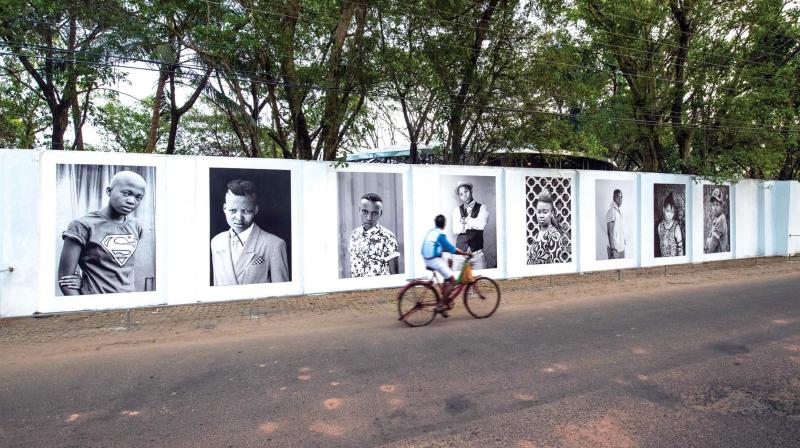Meet the visual activist
Zanele Muholi’s photographic series at the biennale sheds light on the struggles faced by queer people of colour.

In 2006, South African artist Zanele Muholi began a photographic series as an attempt to remedy ‘black queer invisibility’. Featuring lesbians, women and trans people of colour, the project was born out of the need to create a visual history of South Africans, especially lesbians, while highlighting their struggles.
The portraits, in which Zanele’s subjects seem to gaze into the camera with a stony expression, are part of the ongoing Kochi-Muziris Biennale.
“Some of their stories gave me sleepless nights as I tried to process the struggles that were told to me,” says the 47-year-old artist, rewinding her experience while working on the project titled Faces and Phases. “Many of the women I met had been violated and I endeavoured not to exploit them further through my work. I set out to establish relationships with them based on a mutual understanding of what it means to be female, lesbian and black today.”
The Johannesburg-based artist has dedicated the project to a friend who died of HIV-related complications in 2007, at the age of 25.
The work is on display outside Cabral Yard, and at David Hall, located half a kilometre away.
Even as South Africa legalised same-sex marriage around the same time that Zanele started working on her project, discrimination and violence against queer women continue to be spread. In this respect, her series, which is also the subject of a book, has been created as a way of advocating their rights as well as bringing to attention stories of discrimination against the queer community.
Race is also an important element in her work as she critiques traditional photographic techniques that have a bearing on racist attitudes celebrating white skin.
Zanele was born in 1972 at the height of apartheid in South Africa. Her first brush with photography took place while browsing through the works of black women photographers. An important influence in her work has been American photographer Jeanne Moutoussamy-Ashe’s well-known book Viewfinders: Black Women Photographers, which is a survey of black American female photographers of the 19th and 20th centuries.
Zanele began her training as an artist through an advanced photography course at the David Goldblatt-founded Market Photo Workshop in Newtown. Her first solo show, as part of the school’s exhibition in Johannesburg, focused on portraits of black lesbian couples.
Interrogating the marginalisaton of the queer community in the post-apartheid South Africa, the collection received national-level attention.
She has also worked in the field of advocacy on behalf of South Africa’s queer community as a co-founder of the Forum for the Empowerment of Women. Zanele’s activism is an integral part of her art, because of which she identifies herself as a ‘visual activist’.

